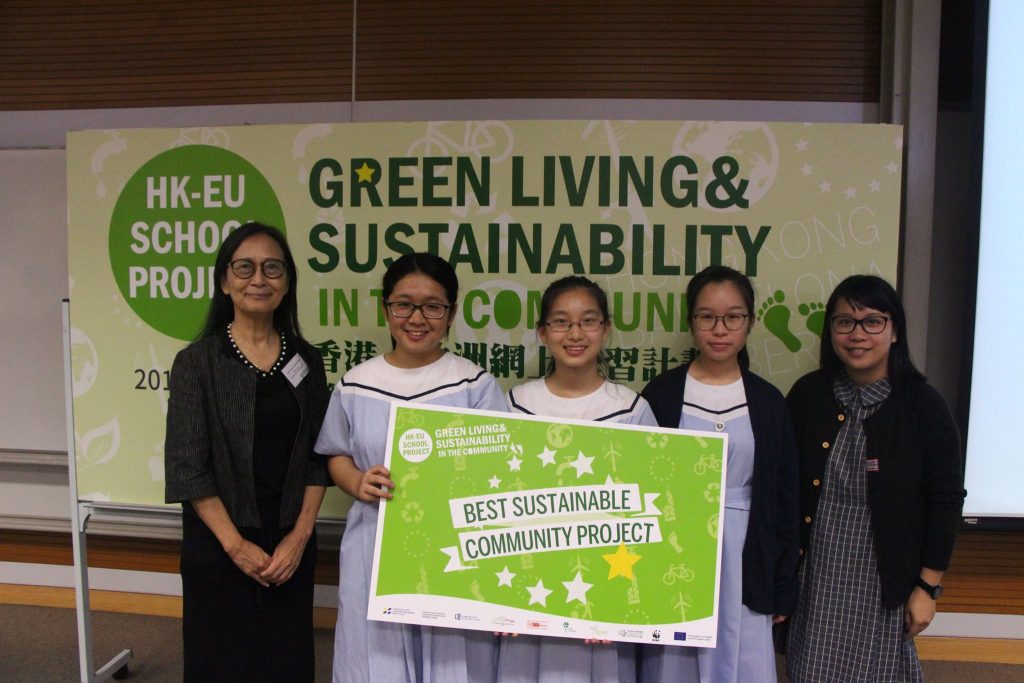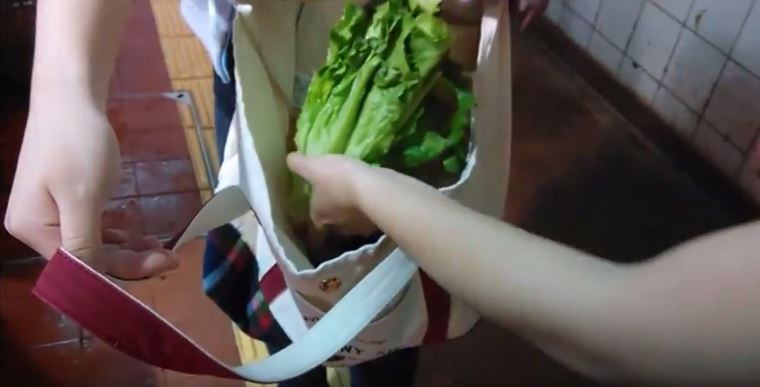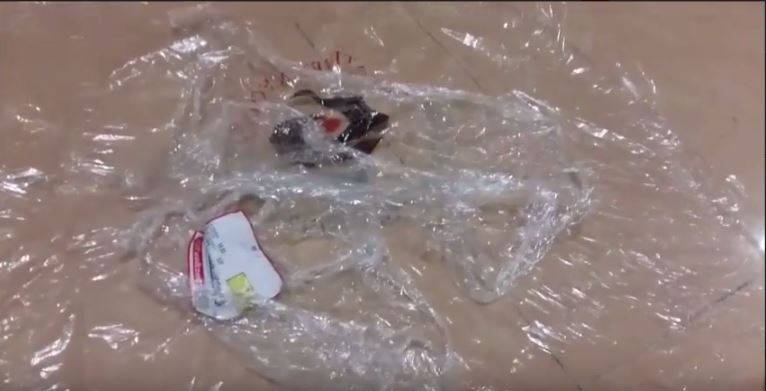About the “Best Sustainable Community Project” Award
 This grand prize is awarded to the best HK-EU collaborative group community project, which took place in weeks 6-8 of the 8-week e-learning project. The most important factor considered for this prize is the level and amount of cooperation that took place between students from the two sides. This group has produced an excellent blog and multimedia presentation in the form of a PowerPoint and a video, involving all members of the group. These students have planned, implemented and evaluated their own efforts in an exemplary manner, in trying to change community behaviour towards more sustainable living. They have clearly understood each other’s community and considered whether their ideas are genuinely practical. Moreover, this winning group has demonstrated well-crafted and all-rounded understanding of the topics they have worked on during weeks 2-5. Five best projects were shortlisted by the EUAP, and a panel of seven expert judges convened to select this top prize.
This grand prize is awarded to the best HK-EU collaborative group community project, which took place in weeks 6-8 of the 8-week e-learning project. The most important factor considered for this prize is the level and amount of cooperation that took place between students from the two sides. This group has produced an excellent blog and multimedia presentation in the form of a PowerPoint and a video, involving all members of the group. These students have planned, implemented and evaluated their own efforts in an exemplary manner, in trying to change community behaviour towards more sustainable living. They have clearly understood each other’s community and considered whether their ideas are genuinely practical. Moreover, this winning group has demonstrated well-crafted and all-rounded understanding of the topics they have worked on during weeks 2-5. Five best projects were shortlisted by the EUAP, and a panel of seven expert judges convened to select this top prize.
The winner of this grand prize saw a successful collaboration between three Hong Kong students from S.K.H. Lam Woo Secondary School, and two students from Gymnasium Oberalster of Hamburg, Germany. With the generous support from the Hong Kong Economic and Trade Office in Brussels and the Hong Kong Economic and Trade Office in Berlin, the prize for the German winners will be to fly to Hong Kong for a one-week stay, where the students will visit their partner school, as well as green facilities and projects in the city. The Hong Kong students will do the same in Hamburg, and will be enjoying their stay in the coming December. The students will become “Sustainability Ambassadors”, and continue the exchanges and dialogues of green living and sustainability in person.
About the winning project:
“Act Responsibly – Buy Plastic-Free!”
The group’s aim was to improve sustainability and the quality of life in their neighbourhoods.
The students investigated and implemented ideas to reduce the use of plastic when buying food on the following three levels:
- Individual
- Neighbourhood
- Community
They planned to analyse their impact on the sustainability of each neighbourhood, understand what the population is prepared to change in their lifestyle, and evaluate their initiatives.
Group members:
Lam Woo Memorial Secondary School:
– Lo Wing Ying – Li Wing Lam, Jessie – Wan Hoi Ching, Frances
Gymnasium Oberalster, Hamburg, Germany:
– Leon Ahmadi-Mogaddam – Ashkan Naebian
>Link to the full project available for download (Google Drive)<
Group Community Project Photos: (click to enlarge)



Group Community Project Video:
If the video does not display properly, please view it on YouTube at: https://www.youtube.com/watch?v=mxuRF9PTVe
Judges’ comments:
The Best Sustainable Community Project - Winner: Group 24
“This project covered a full spectrum on sustainability, which showed a good level of analysis to understanding the concept of green space. From the actions of the Barcelona students, there was a logical coherence that drew a direct link to Hong Kong. With the implementation of ideas from both sides, the students drew consequence of their action. And although the two projects did not work on the same issues, they shared many similar aspects where Barcelona made a concrete suggestion to Hong Kong as to what could be done. This showed good cooperation and communication taking place, and the project would provide a good idea for further cooperation between the two cities.”
“The idea of the project is simple enough but the students actually carried it out, rather than just producing a research/factual report. Connections between conceptual frame occurred on the highest level, and concrete action was clearly and successfully taken by young people themselves. Throughout the project, Hong Kong and Barcelona are easily communicable and they can learn from each other easily.”
“This group showed a comprehensive scope of focus: from the principles, to setting the survey, making comparisons, to obtaining an effective conclusion, all of these demonstrated the students' ideas involving the local community. The message of the project was easy to spread amongst community, and the students' campaign was like a green group, which can have a long-lasting impact. It is something that appeals to cross-generations.”
